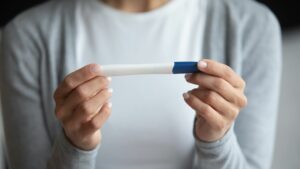Low AMH and Infertility
Advanced reproductive age or low AMH (low ovarian reserve) in the field of IVF for infertility means there are lower than ideal numbers of eggs and lower numbers of embryos. The quality of embryos is lower. Importantly, there is an increased risk of pregnancy losses, particularly due to abnormal chromosomes in the embryo. The “take home baby rate” or live birth rates after IVF in these women is simply lower.
The eggs are dependent on the mitochondria for their energy supply. Think of the tiny mitochondria, which you learned about in high school biology, as the battery of the eggs. ATP is analogous to the electricity from the batteries supplying the energy. As ovaries age and low AMH becomes a factor, the number and function of mitochondria is diminished, resulting in less electricity dedicated to making healthy eggs.
Co-Q 10 Research is Promising
Dr. Robert Casper and colleagues from Toronto has worked with eight-month old mice that are retired from breeding because they do not reproduce well. They are nearing the end of their one-year lifespan. The Canadian group has used a number of mitochondrial nutrients to try to improve the eggs of these aging mice. They tried Resveratrol, RALA, an antioxidant, and coenzyme Q 10 which have been shown to have benefits with other diseases. Co-Q 10 turned out to show a benefit not provided by the other compounds.
There are several other studies involving Co-Q 10 that are intriguing. One study showed that Co-Q 10 was helpful after IVF in cows. They showed that there was increased ATP in embryos cultured with Co-Q-10. A human study in Toronto, Canada recently showed an improvement in the number of abnormal chromosomes in the embryos of patients treated with Co-Q 10. The study was not large enough to show a statistically significant improvement in pregnancies, but further studies are continuing. The dose selected in the study was 600mg of Co-Q 10 once a day with breakfast for two months prior to IVF.
No one knows for sure this is going to work in humans. It would be remarkable if it is proven to be effective. There are lots of choices of vitamin supplements and herbs which have been touted to improve IVF pregnancy rates. At least this one has some rationale based on actual studies. For women with low AMH, in combination with DHEA, it would be a rational supplement to consider taking C0-Q 10 while we await the definitive studies.
If you are having trouble conceiving and have not been tested for low AMH, we welcome you to contact us for an appointment.
Reference:
Bentov Y and Casper RF et al Clinical Medicine Insights: Coenzyme Q Supplementation and Ovocyte Aneuploidy In Women Undergoing IVF, ICSI Treatment. Reproductive Health 2014: Volume 8 page 31-36:2014.






